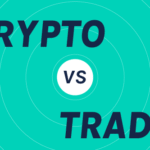How Blockchain Is Revolutionizing Industries Beyond Crypto

Introduction
While blockchain technology gained global attention through cryptocurrencies like Bitcoin and Ethereum, its potential extends far beyond digital currencies. Today, blockchain is disrupting traditional systems in numerous industries by offering secure, transparent, and decentralized solutions. From supply chain optimization to medical data management, blockchain is playing a transformative role in redefining how industries operate.
Blockchain in Supply Chain Management
Blockchain offers end-to-end visibility and traceability in supply chains. By recording every transaction or movement of goods on an immutable ledger, stakeholders can track a product’s journey from origin to destination in real time. This transparency reduces fraud, improves inventory management, and ensures product authenticity.
For example, major companies like Walmart and IBM have implemented blockchain to trace food sources and ensure safety standards. In case of contamination or recall, the blockchain enables quick identification of affected batches, saving time, money, and lives.
Blockchain in Healthcare
In healthcare, blockchain is addressing long-standing challenges such as data fragmentation, patient privacy, and interoperability between systems. By securely storing patient records on a distributed ledger, blockchain ensures that medical data is accessible only to authorized personnel while maintaining data integrity.
It also facilitates seamless data sharing between hospitals, labs, and insurance providers, reducing administrative overhead and enhancing patient care. Furthermore, blockchain can track pharmaceutical supply chains to combat counterfeit drugs.
Blockchain in Real Estate
Real estate transactions are often slow, paperwork-intensive, and susceptible to fraud. Blockchain simplifies this process by enabling secure digital contracts, transparent title transfers, and verifiable ownership histories through smart contracts and tokenized assets.
By eliminating intermediaries, reducing transaction costs, and increasing transparency, blockchain improves efficiency in property sales, leasing, and land registration. Pilot programs in countries like Sweden and the UAE are already exploring blockchain-based land registries.
Blockchain in Finance and Banking
The finance industry was among the first to explore blockchain’s potential beyond cryptocurrency. Blockchain facilitates faster and more secure cross-border payments, reduces settlement times for securities, and enhances fraud prevention through transparent transaction records.
Institutions are increasingly using blockchain for Know Your Customer (KYC) compliance, loan processing, and decentralized finance (DeFi) applications. It also reduces reliance on central intermediaries, allowing for more inclusive and efficient financial systems.
Blockchain in Education
In education, blockchain is being used to issue and verify academic credentials, reducing the risk of forgery. Institutions can store diplomas, transcripts, and certifications on a blockchain, allowing employers and other schools to instantly verify qualifications without administrative delays.
This ensures trust and authenticity while empowering students to own and share their educational records digitally and securely.
Blockchain in Government and Public Services
Governments are exploring blockchain to improve transparency, accountability, and efficiency in public administration. Blockchain can be used for digital identity management, secure voting systems, welfare distribution, and transparent procurement processes.
By reducing bureaucracy and increasing data integrity, blockchain helps build public trust and streamlines service delivery.
Conclusion
Blockchain technology is no longer confined to the realm of cryptocurrency. Its ability to ensure transparency, security, and efficiency is driving innovation across diverse industries. As adoption grows, blockchain is poised to reshape the way businesses and governments operate—creating systems that are more reliable, decentralized, and inclusive. Organizations that embrace blockchain early will likely gain a competitive edge in the increasingly digital economy.









